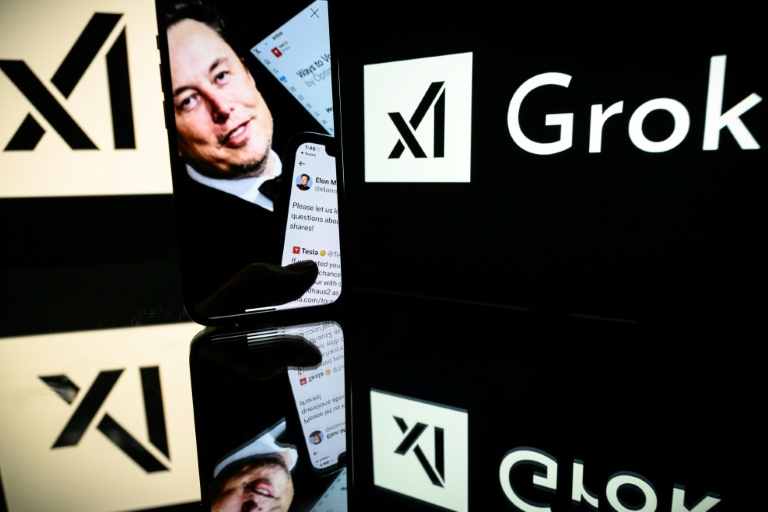Science
Elon Musk’s Grokipedia Faces Scrutiny Over Questionable Sources

Elon Musk’s Grokipedia, an AI-powered encyclopedia launched last month, has come under scrutiny for its reliance on “questionable” sources. Researchers from Cornell Tech published a report on March 15, 2024, indicating that Grokipedia contains numerous citations to sources deemed problematic, raising questions about its reliability as an information tool.
The platform was developed by Musk’s company, xAI, as a competitor to Wikipedia, which has faced accusations of ideological bias, particularly from Musk and some members of the American right. The Cornell Tech study, led by researchers Harold Triedman and Alexios Mantzarlis, examined hundreds of thousands of articles on Grokipedia and found a disturbing trend: the site often cites sources that lack credibility.
According to the report, Grokipedia’s sourcing guidelines appear to have been relaxed significantly, allowing the inclusion of unreliable information. The researchers noted, “It is clear that sourcing guardrails have largely been lifted on Grokipedia.” This has led to a higher prevalence of potentially problematic sources, especially concerning political topics and elected officials.
One notable example highlighted in the study is Grokipedia’s entry for the “Clinton body count,” a debunked conspiracy theory that connects the deaths of various individuals to former President Bill Clinton and his wife, Hillary Clinton. This entry cites InfoWars, a far-right website known for spreading misinformation. Other articles on Grokipedia reference American and Indian right-wing media, as well as state media from China and Iran. Some articles also include links to sites promoting pseudoscience and conspiracy theories, with little or no qualification regarding their reliability.
The researchers pointed out that Grokipedia articles often contain verbatim text taken from Wikipedia, which it seeks to surpass. Furthermore, articles on Grokipedia are approximately 3.2 times more likely than those on Wikipedia to cite sources categorized as “generally unreliable” by the English Wikipedia community. They are also 13 times more likely to reference sources that have been blacklisted by Wikipedia.
In response to a request for comment from AFP, xAI provided a brief automated reply stating, “Legacy Media Lies.” Musk, the world’s richest individual and owner of the social media platform X, has claimed that Grokipedia aims to deliver “the truth, the whole truth and nothing but the truth.” He announced plans to rebrand Grokipedia as “Encyclopedia Galactica” once it achieves a satisfactory level of quality. On his platform, Musk encouraged users to join xAI in building “the sci-fi version of the Library of Alexandria.”
Musk and several members of the Republican Party have consistently accused Wikipedia of bias against right-wing perspectives. Last year, he urged his followers on X to cease donations to Wikipedia, labeling it “Wokepedia.”
In a recent discussion on the BBC Science Focus podcast, Wikipedia founder Jimmy Wales refuted claims of left-wing bias as “factually incorrect.” He acknowledged, however, that there are areas for improvement within the volunteer community that contributes to the platform.
Selena Deckelmann, Chief Product and Technology Officer at the Wikimedia Foundation, emphasized the differences between Grokipedia and Wikipedia, stating, “Unlike Grokipedia, which relies on rapid AI-generated content with limited transparency and oversight, Wikipedia’s processes are open to public review.” She added that Wikipedia rigorously documents the sources behind every article, which is vital for maintaining neutrality and trustworthiness.
This ongoing debate over Grokipedia’s credibility underscores the broader challenges facing digital information platforms in an age where misinformation can spread rapidly. As Musk continues to develop his alternative to Wikipedia, questions about the reliability and accountability of AI-generated content remain at the forefront of discussions regarding the future of online information.
-

 Science3 months ago
Science3 months agoToyoake City Proposes Daily Two-Hour Smartphone Use Limit
-

 Top Stories3 months ago
Top Stories3 months agoPedestrian Fatally Injured in Esquimalt Collision on August 14
-

 Health3 months ago
Health3 months agoB.C. Review Reveals Urgent Need for Rare-Disease Drug Reforms
-

 Technology3 months ago
Technology3 months agoDark Adventure Game “Bye Sweet Carole” Set for October Release
-

 World3 months ago
World3 months agoJimmy Lai’s Defense Challenges Charges Under National Security Law
-

 Lifestyle3 months ago
Lifestyle3 months agoVictoria’s Pop-Up Shop Shines Light on B.C.’s Wolf Cull
-

 Technology3 months ago
Technology3 months agoKonami Revives Iconic Metal Gear Solid Delta Ahead of Release
-

 Technology3 months ago
Technology3 months agoApple Expands Self-Service Repair Program to Canada
-

 Technology3 months ago
Technology3 months agoSnapmaker U1 Color 3D Printer Redefines Speed and Sustainability
-

 Technology3 months ago
Technology3 months agoAION Folding Knife: Redefining EDC Design with Premium Materials
-

 Business3 months ago
Business3 months agoGordon Murray Automotive Unveils S1 LM and Le Mans GTR at Monterey
-

 Technology3 months ago
Technology3 months agoSolve Today’s Wordle Challenge: Hints and Answer for August 19









